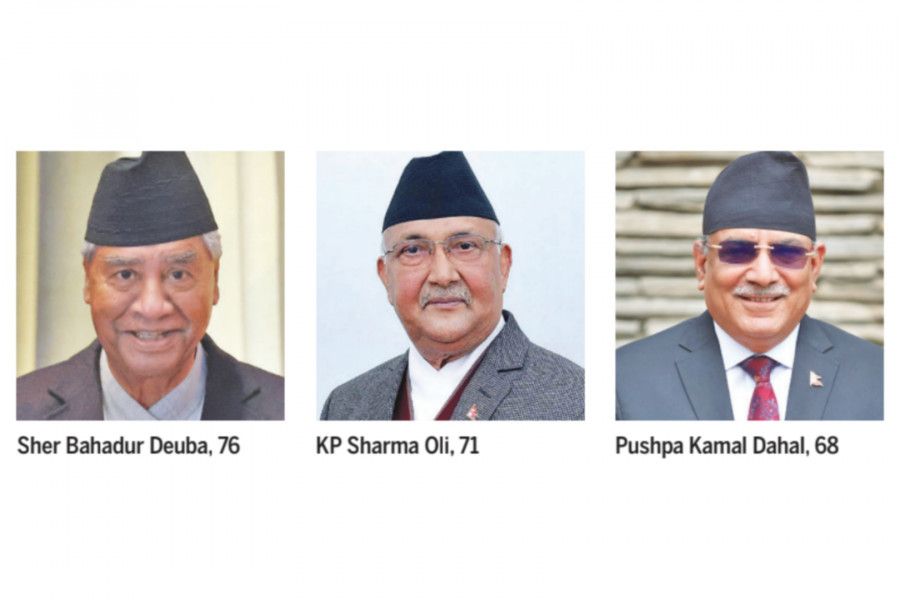Editorial
Change is the game
It may not be a bad idea to set legal age and term limits on all public office holders.
“If bureaucrats, professors and justices retire at a certain age, why not politicians?” Former chief election commissioner Neel Kantha Uprety was on to something when he recently talked to the Post. The context was the CPN-UML’s decision to remove the 70-year age limit for executive post-holders in the party. It was widely seen as a sneaky attempt to allow UML Chairman KP Sharma Oli, who is 71, to again contest the party’s top post. But to do so, Oli, a two-time UML chair, will also have to clear the additional hurdle in the form of the party statute that stipulates that a person can contest party chair post only twice. Yet given his absolute grip on the UML party machinery, it should come as no surprise if the statute is amended to allow him to run again. Old leaders clinging to top posts and thwarting the next generation from taking leadership is not a problem limited to the UML though. Prime Minister Pushpa Kamal Dahal, 68, has enjoyed an uninterrupted 35-year leadership of his party. The Nepali Congress President Sher Bahadur Deuba, 76, also seems to be in no mood to bow out of politics soon.
This brings us back to Uprety’s question. Term and age limits are in place for most professions as the physical and mental performance of humans decline with age. The more important the executive posts and greater the responsibilities, the more the occupants of these offices need to be in top shape to do their jobs well. Yet it is also not just a matter of fitness. Periodic leadership renewal is vital in all organisations, or they stagnate and ossify. When those in the lower rungs see no possibility for growth in the organisation, they can be demotivated. Capable people from outside the organisation will also be dissuaded from joining. This is one reason many voters in the 2022 general elections and the 2023 by-elections chose to cast their ballots in favour of new outfits like the Rastriya Swatantra Party under Rabi Lamichhane (48) and the Janamat Party under CK Raut (45).
Thankfully, nearly all the big and small parties increasingly feel the need for timely churn in leadership. Like the UML, the Congress has a two-term limit. Even the rank and file of CPN (Maoist Centre), PM Dahal’s mother party, has repeatedly asked for age (70 years) and term (two) caps on the Maoist leadership. No matter how hard the likes of Deuba, Oli and Dahal resist, change will come—and perhaps sooner than they expect. Although it is hard to imagine them doing so, they will set a wonderful precedent if they voluntarily retire from active politics from a particular date. But rather than rely on the whims of individual leaders, eventually, though, it may not be a bad idea to put legal age and term limits on all public office holders, including the leaderships of political parties. For a country whose median age is under 25, it is a travesty that nearly all its top political leaders are around three-times as old.




 18.12°C Kathmandu
18.12°C Kathmandu














